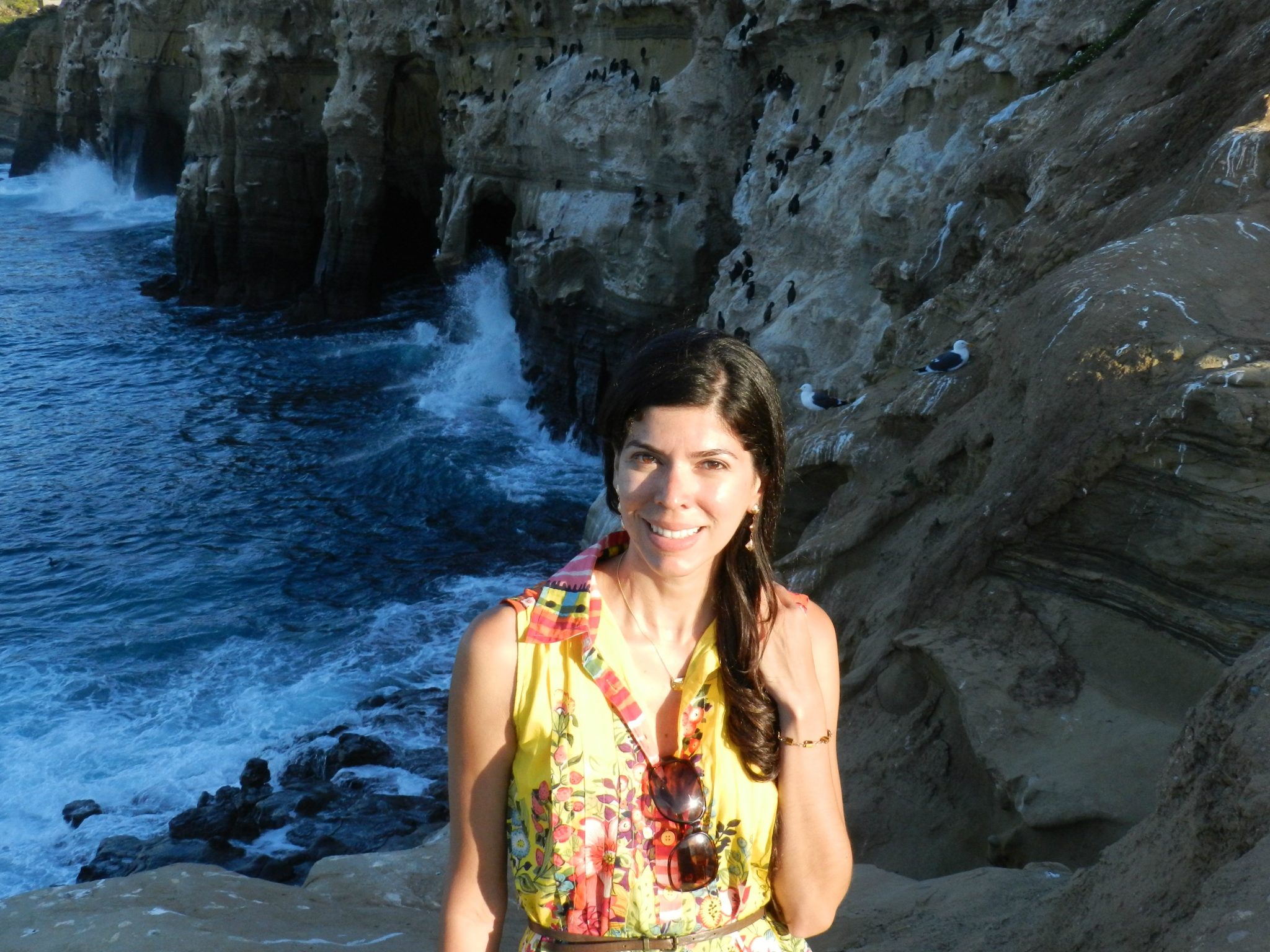
Country: Brazil
Daniele Vila Nova is a biologist, with a Masters/Ph.D. in Ecology and Conservation from the Federal University of Paraná, Brazil. Her research focus started with an ecosystem-based approach to design Marine Protected Areas. Later on, while aggregating to her projects a more holistic vision towards coastal-marine management, she started working more closely with local users/beneficiaries, particularly small-scale fisheries. Her work with small-scale fisheries also includes fostering the implementation of the Small-Scale Fisheries Guidelines in Brazil alongside with fishworkers, community leaders and other small-scale fisheries researchers. For the past years, she has been involved in multiple consulting projects related to small-scale fisheries at both local as well as national scales in Brazil, particularly in themes related to Marine Spatial Planning (MSP) and sustainable fisheries.
Q: What are you currently working on within the context of SSF?
DVN: Within small-scale fisheries, I've been working for the past three years in a project called Babitonga Ativa project (https://www.babitongaativa.com/about-us), which is the first initiative at a regional level in Brazil, to promote the empowerment of both small-scale fishers and other less influential stakeholders in a participatory spatial planning endeavor. I have been particularly involved in adapting participatory mapping methodologies and local ecological knowledge of small-scale fishers in the Babitonga Bay (south coast of Brazil), to ultimately build a collaborative platform for management. Small-scale fisheries in that region target several species of fish, crabs, shrimps, oysters and shellfish, involving hundreds of families and providing a substantial component of food provision and livelihood, particularly for the low-income. The methodology applied also helped to open the opportunity for dialogue amongst the fishing communities; the sense of stewardship among small-scale fishermen, which is already evident, has the potential to greatly advance the discussion as their local ecological knowledge of the region is being considered within a broader, long-term, ecosystem-based planning process, such as the one the Babitonga Ativa project boldly aims to establish. At this time, we're finishing the first proposal for MSP in the Babitonga Bay, to be incorporated by a recently created joint management body, made by multiple local stakeholders.
Q: If you could single out one or two most significant factors for securing sustainability of SSF, what would these factors be?
DVN: Information is crucial. In Brazil, for instance, the federal government stopped performing fisheries statistics in around 2010. Too many important information have not been collected since then, which poses a great hazard to stock assessments and management regulations for target species. Self-monitoring initiatives are starting to become more common among local communities, particularly with the help of NGOs and academic researchers. When it's not possible to rely on the government for such a basic component for securing the sustainability of small-scale fisheries (and fisheries in general), it's important to invest in local approaches to help assess and sustain fishing activities.
Another significant factor for securing sustainability of small-scale fisheries is guaranteeing access rights for the fishermen/women. Urban areas along the coast, under ongoing expansion, have been historically expelling traditional communities to farther areas. Access to historical fishing grounds have been jeopardized because of increasing distance to such areas, pollution from irregular development, private condos/hotels with limited (or even prohibited) access to non-owners/guests, among others. It's important to guarantee access to these fishing areas while enforcing policies that promote safeguard of healthy ecosystems to all.















